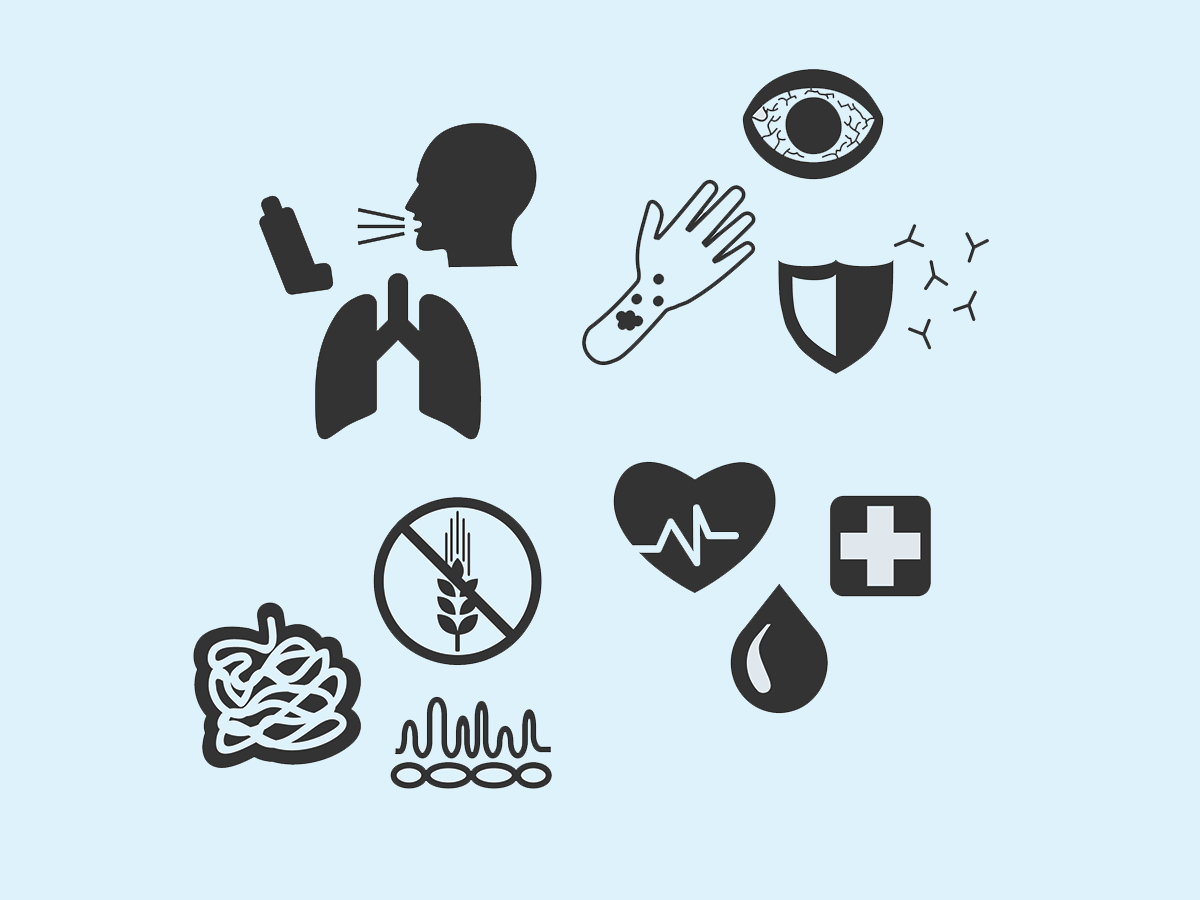My “Finger Twitch” Turned Out to Be Brain Inflammation

When this young, healthy woman developed symptoms that progressed from cramped fingers to hallucinations and seizures, her doctors thought she was losing her mind. Actually, she was losing her brain.
A twitch in her right pinky finger? Weird, thought 18-year-old Olivia Palermo, but hardly alarming. It was the summer of 2018, she had just graduated from high school, and Palermo was celebrating with friends away from her home in Baltimore, Maryland; she wasn’t about to miss the fun over a minor concern. Little did Palermo realize that the twitch was a sign that her brain was in danger.
The twitch continued when she was back home, and Palermo assumed it was due to dehydration and late nights. Although she drank more water and went to bed earlier, the symptom persisted. “The twitching spread to all of the fingers on my right hand, and then they began to cramp. I couldn’t straighten my fingers and my hand became stiff. I knew something wasn’t right.”
A restaurant hostess at the time, Palermo noticed that she was beginning to struggle to form words when taking reservations. “It felt like every word was forced. I knew what I wanted to say, but it was physically difficult to speak at that point.” Alarmed, Palermo’s mother made a doctor’s appointment for the next day. “He said my symptoms were all physical symptoms of anxiety and sent me to a therapist, which was no help at all.”
Palermo’s symptoms only got worse
“The twitching continued, and my speech was slurring. It sounded like my mouth was filled with marbles. Then I started having trouble sleeping.” The psychiatrist put Palermo on anti-anxiety and antidepressant medication, and once her insomnia began, heavy sleep aids. Nothing worked. “It felt as if I had sleep paralysis. My body would be unable to move, but my brain never turned off. I would wake in the morning with my heart racing, feeling as though I was in the middle of a panic attack.” At one point, she had not slept in 25 days. She began hallucinating, hearing voices, and drifting in and out of lucidness.
Her psychiatrist prescribed more sleep meds, but nothing eased her insomnia. When asked if she was suicidal, Palermo replied that she was—and that led to a short stint in a psychiatric facility. ” I knew I didn’t need to be there, and my parents checked me out after a few days. I spent that entire month in our basement. I didn’t want to leave the house or speak to anyone.”

One morning Palermo awoke to a bruised tongue; she thought she may have bit it in her sleep.
The truth was much more disturbing: During a family dinner at a restaurant, she had a seizure. “My parents tell me I began rocking back and forth, making repetitive sounds. I didn’t recognize my mom or my dad. I have no memory of any of it. It was then they knew something was truly wrong.”
Palermo’s psychiatrist put her through some basic mental tests: “I couldn’t write my name or read. I couldn’t recognize simple shapes. She watched me walk, and I had deteriorated so much by then I had to hold on to things to get around.” The psychiatrist referred Palermo to The Johns Hopkins Hospital, where, because of her previous admission to a psychiatric facility, she was sent immediately to the psychiatric department. “They said I was possibly schizophrenic—but I knew that wasn’t the problem at all.”
Desperate for the truth
Palermo’s parents got her discharged from the hospital and made an appointment with neurologist James F. Wolf, MD. For the first time in a long time, Palermo felt hope. “Dr. Wolf looked at me and said ‘I believe you and I will diagnose you. This is not a psychiatric problem.'”
After two normal MRI scans, Dr. Wolf suspected Palermo was suffering from some form of encephalitis—brain inflammation—and ordered blood tests. When the results came back, Dr. Wolf gave Palermo a thumbs up; his hunch was correct. “I felt like everything was going to be alright once I saw that.”
Palermo was diagnosed in August 2018, with anti-NMDAR encephalitis, an autoimmune disorder in which the body’s defenses mistakenly attack the brain, triggering inflammation. Researchers aren’t sure why the immune system turns on the brain, but some believe it may be the result of chronic infections such as the herpes simplex virus.
“The illness starts with flu-like symptoms,” explains Ava Easton, PhD, chief executive officer of the Encephalitis Society, “and is followed by the development of psychotic symptoms, seizures, memory issues, and decreased consciousness. Most patients present to the hospital in the psychotic stage. Three-quarters of them have seen by a psychiatrist and nearly half of them are misdiagnosed with a psychiatric condition.”

Palermo’s treating physician, Arun Venkatesan, MD, PhD, director of the Johns Hopkins Encephalitis Center and a member of the Encephalitis Society Scientific Advisory Panel, explains to Reader’s Digest: “Treatment involves quieting down the immune system since this is a condition in which the patient’s own immune system is attacking their brain cells. There are a number of ways to do this, including oral medications, and IV infusions.” Palermo was treated with steroid medications and infusions in the hospital; over the next few months, she began to regain her mental and physical abilities. (Note: These everyday habits can naturally boost your immune system.)
Today, Palermo has made a full recovery and she’s attending college. She hopes to one day become a nurse. For now, she has one message: “I want others with this to know that it will take time and patience, but things will get better.”
Medically reviewed by Renata Chalfin, MD.







